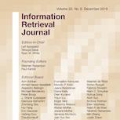The success of Bayesian persuasion relies on the key assumption that the sender will commit to a predetermined information disclosure policy (signaling scheme). However, in practice, it is usually difficult for the receiver to monitor whether the sender sticks to the disclosure policy, which makes the credibility of the sender's disclosure policy questionable. The sender's credibility is particularly tenuous when there are obvious deviations that benefit the sender. In this work, we identify such a deviation: the sender may be unwilling to send a signal that will lead to a less desirable outcome compared to no information disclosure. We thus propose the notion of ex-post individually rational (ex-post IR) Bayesian persuasion: after observing the state, the sender is never required to send a signal that will make the outcome worse off (compared to no information disclosure). An ex-post IR Bayesian persuasion policy is more likely to be truthfully followed by the sender, and thus more credible for the receiver. Our contribution is threefold. Firstly, we demonstrate that the optimal ex-post IR Bayesian persuasion policy can be efficiently computed through a linear program, while also offering geometric characterizations of this optimal policy. Second, we show that surprisingly, for non-trivial classes of games, the imposition of ex-post IR constraints does not affect the sender's expected utility. Finally, we compare ex-post IR Bayesian persuasion to other information disclosure models that ensure different notions of credibility.
翻译:暂无翻译





